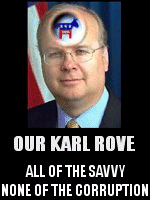Democrats,
You have unofficially rolled out a new go-to-market term: "The Common Good." The Wall Street Journal did a nice write-up on it. In essence, it's symbolic rhetoric lifted from Roman Catholicism designed to put Democrats on higher moral ground when talking about economic opportunity and equity.
Congratulations on considering the ideas being written about here at OKR for years: Words matter. Symbols matter. Philosophy matters. And how you use all these bits in concert matters.
As far as snappy phrases go, it's good (especially when handicapping for Democratic ability in this area)... but it's certainly not great.
The good:
- It provides moderate cover for talking about taxation (especially progressive).
- It's a positive message (after all, it has the word 'good' in it).
- It has strong ties to the strategically critical Catholic community.
- It will speak to people who feel like they're common-folk.
- It sounds generic (after all, it has the word 'common' in it), and Americans like to be told we're special.
- It risks alienating those who do not feel like they're part of 'the common.'
- It could sound like a veiled attack on individualism. Be careful; don't attack a fundamental construct of American culture -- roll with it.
- It could sound like a codeword for socialist, big-government programs. Make sure not to exclusively tie this phrase to top-down programs.
The Greater Good
The Greater Good is quite similar to the Common Good, but it has some additional features:
- "Greater" fits the American ethos better than "common."
- "Greater" can evoke a spiritual, religious element for those who see things this way.
- "Greater" means the same as "common" for those who see things this way.
- The root word of "greater" is 'great' -- and what political party wouldn't want the concept of 'great' to be a part of their philosophical core?
Note: For all of those candidates trying to catch Hillary, you can use this tip to get ahead of her in the rhetoric race.
